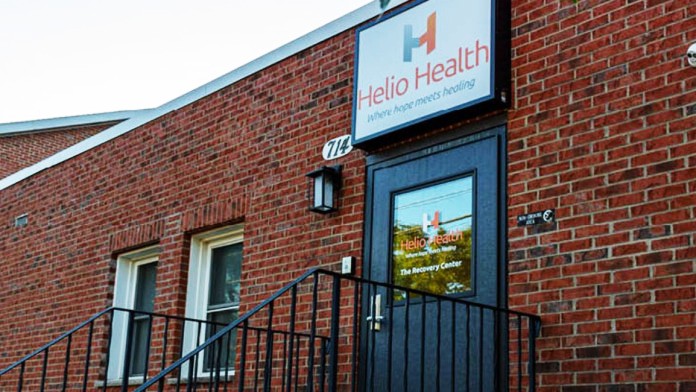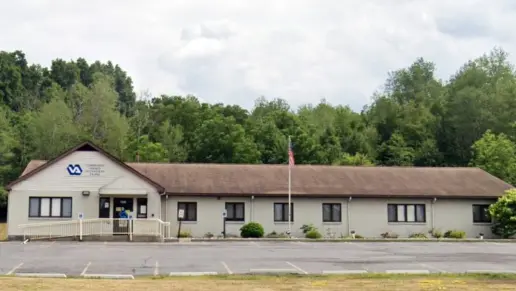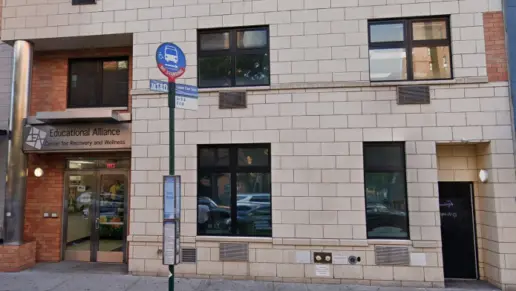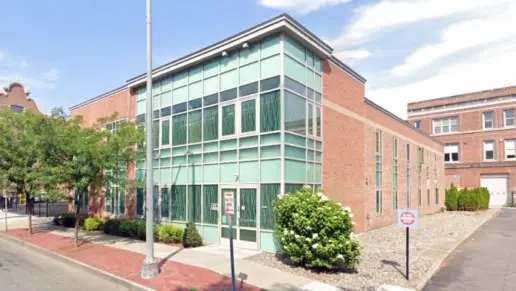About Helio Health’s The Recovery Center
Helio Health, formerly the Syracuse Behavioral Healthcare, has a clinic in Syracuse, New York. It’s the Recovery Center, and at this facility, they offer a variety of different aftercare services to individuals over the age of eighteen. This facility provides mental health groups, LGBTQ support groups, Narcan training, art classes, employment services, and 12 Step meetings.
When seeking support, it can be nerve wracking and uncomfortable from feeling vulnerable and may be fearful of being misunderstood, especially after you finish a treatment program. Their staff offers a safe and comfortable place to help you get connected with others and receive support you may be in need of during a time of transition.
What makes this community center so unique is the recreational fun they provide such as art, writing, yoga, and job coaching. This gives you an opportunity to be creative, exercise mindfulness practice, boost self-confidence and help you receive guidance for employment oppurtunities. There are also movie nights, color clubs, and meetings for women, veterans, and men.
They also have services for career planning by working closely with a job coach. The job coach is available but by appointments only. This can create more options and assist you with resume building and possible job training.
The meetings and support groups they hold at this facility helps with recovery support with meetings being readily available. This helps create structure and convenience for your weekly routine. Anger management therapy as well as coping skills classes are accessible, and everyone is welcomed.
Rehab Score
Gallery

Location
Other Forms of Payment
Self-pay involves paying for treatment out of your own pocket. You can use savings or credit, get a personal loan, or receive help from family and friends to fund your treatment. If you don't have insurance or your insurance plan doesn't cover a specific program, self-pay can help ensure you still get the care you need.
Medicaid is a state based program that helps lower-income individuals and families pay for healthcare. Medicaid covers addiction treatment so those enrolled can use their coverage to pay for rehab. When a program accepts Medicaid the client often pays very little or nothing out of their own pocket.
Addiction Treatments
Levels of Care
Treatments
The goal of treatment for alcoholism is abstinence. Those with poor social support, poor motivation, or psychiatric disorders tend to relapse within a few years of treatment. For these people, success is measured by longer periods of abstinence, reduced use of alcohol, better health, and improved social functioning. Recovery and Maintenance are usually based on 12 step programs and AA meetings.
When you choose drug rehab in New York, you'll participate in a variety of treatments that are designed to help you live a drug-free lifestyle. Common methods of treatment include group, individual, and family counseling, medication management, nutrition, exercise, and management of co-occurring mental health disorders.
Opioid rehabs specialize in supporting those recovering from opioid addiction. They treat those suffering from addiction to illegal opioids like heroin, as well as prescription drugs like oxycodone. These centers typically combine both physical as well as mental and emotional support to help stop addiction. Physical support often includes medical detox and subsequent medical support (including medication), and mental support includes in-depth therapy to address the underlying causes of addiction.
Substance rehabs focus on helping individuals recover from substance abuse, including alcohol and drug addiction (both illegal and prescription drugs). They often include the opportunity to engage in both individual as well as group therapy.
Programs


Clinical Services
Research clearly demonstrates that recovery is far more successful and sustainable when loved ones like family members participate in rehab and substance abuse treatment. Genetic factors may be at play when it comes to drug and alcohol addiction, as well as mental health issues. Family dynamics often play a critical role in addiction triggers, and if properly educated, family members can be a strong source of support when it comes to rehabilitation.
Group therapy is any therapeutic work that happens in a group (not one-on-one). There are a number of different group therapy modalities, including support groups, experiential therapy, psycho-education, and more. Group therapy involves treatment as well as processing interaction between group members.
In individual therapy, a patient meets one-on-one with a trained psychologist or counselor. Therapy is a pivotal part of effective substance abuse treatment, as it often covers root causes of addiction, including challenges faced by the patient in their social, family, and work/school life.
Amenities
-
Private Setting
Contact Information
714 Hickory Street
Syracuse, NY 13203


